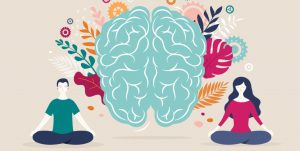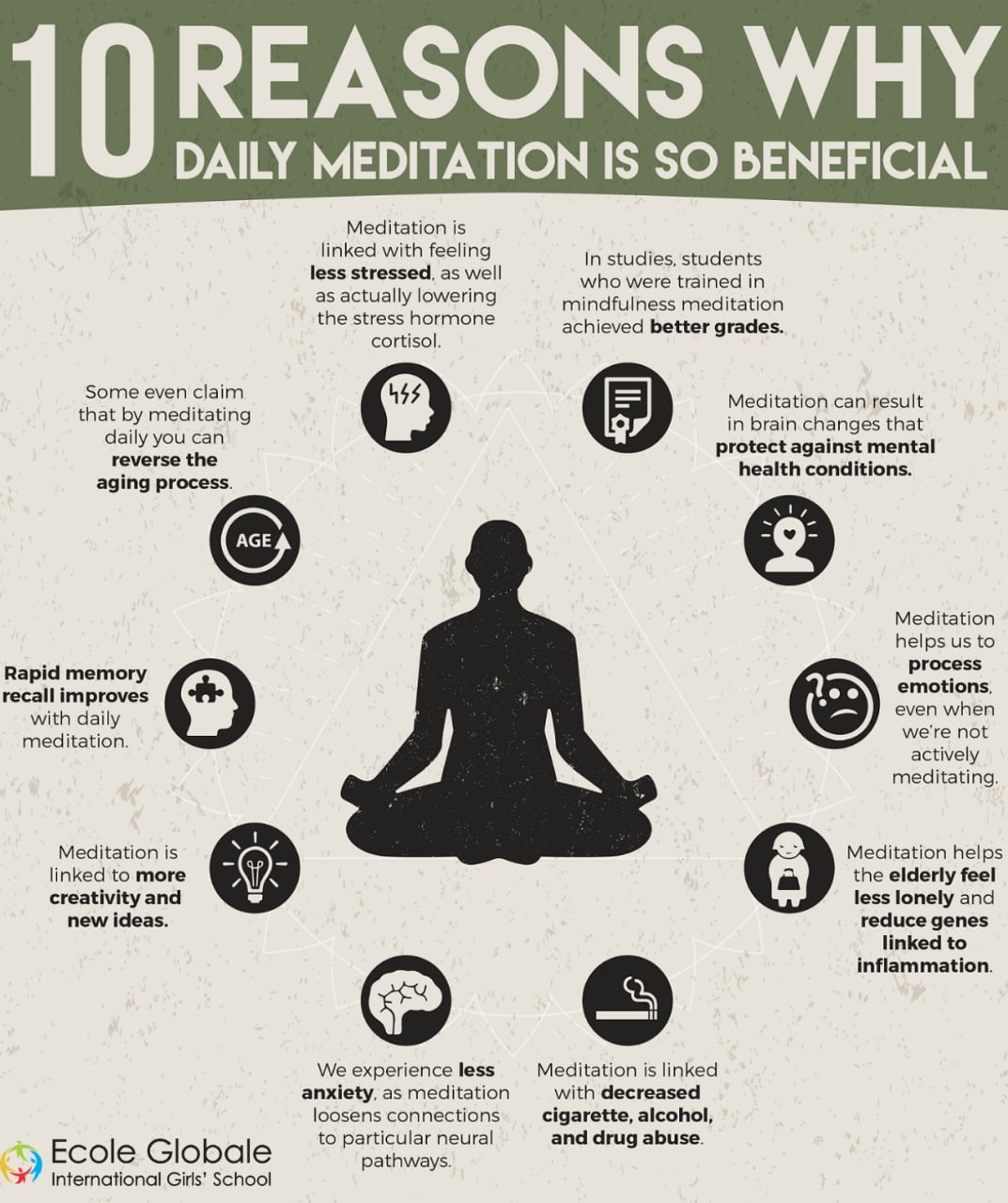In today’s fast-paced world, finding a moment of peace and tranquility can seem like a luxury. However, the ancient practice of meditation offers just that and much more.
Daily meditation is not just a momentary escape from life’s stresses but a journey toward profound self-discovery and improved well-being. Here, we explore ten benefits of daily meditation and why incorporating meditation into your daily routine can be incredibly beneficial, especially in the context of India’s rich spiritual heritage.
The Science Behind Meditation

Meditation is more than just sitting quietly; it’s a practice supported by science. Research shows that meditation can significantly affect both the brain and body, promoting a state of relaxation and mindfulness that carries over into everyday life.
This practice can lead to changes in brain structure that enhance mental flexibility, reduce stress levels, and improve cognitive function.
Benefits of Daily Meditation
Reduces Stress
One of the most celebrated benefits of meditation is its ability to reduce stress. In a world where stress has become a constant companion for many, meditation offers a respite. It lowers cortisol levels, the stress hormone, leading to a feeling of calm and relaxation.
Enhances Concentration
For students and professionals alike, concentration is key to success. Meditation sharpens the mind, improving focus and attention span. Regular practice can lead to better academic and professional performance, making it a valuable tool for anyone looking to enhance their cognitive abilities.
Improves Emotional Health

Meditation is not just about calming the mind; it’s also about enriching the heart. It can significantly improve emotional health, reducing symptoms of depression and anxiety. By fostering a state of mindfulness, individuals can develop a more positive outlook on life.
Enhances Self-Awareness
Self-awareness is the cornerstone of personal growth. Meditation encourages introspection, helping individuals understand their thoughts and emotions more clearly. This increased self-awareness can lead to better decision-making and a more fulfilling life.
Lengthens Attention Span
In an age of constant distractions, maintaining a long attention span is a challenge. Meditation, however, can counteract this trend. By training the mind to focus on the present moment, meditation can help lengthen the attention span, benefiting both personal and professional life.
May Reduce Age-Related Memory Loss
The benefits of meditation extend into the golden years, potentially protecting against age-related memory loss. Practices like Kirtan Kriya, which combines meditation with a chanting exercise, have been shown to improve participants’ ability to perform memory tasks.
Can Generate Kindness
Meditation can also open the heart, fostering feelings of compassion and kindness. Metta, or loving-kindness meditation, is a practice that encourages unconditional kindness towards oneself and others, promoting a sense of connectedness and empathy.
May Help Fight Addictions

The mindfulness developed through meditation can be a powerful tool in the fight against addictions. By increasing self-control and awareness of triggers for addictive behaviors, meditation can help individuals break free from the cycle of addiction.
Improves Sleep
Insomnia plagues countless individuals, but meditation offers a natural remedy. By promoting relaxation and reducing stress, meditation can improve sleep patterns, making it easier to fall asleep and stay asleep throughout the night.
Helps Control Pain
Meditation’s impact on the mind can also extend to physical pain management. Studies have shown that meditation can reduce the perception of pain in the brain, offering a complementary approach to traditional pain management strategies.
Practicing Meditation at Schools:
Meditation practice at schools helps students improve focus, reduce stress, and develop emotional well-being.
By starting the day with a few minutes of mindfulness, children become more attentive and calm in class. Many schools in Dehradun have begun integrating meditation sessions to promote a balanced and peaceful learning environment.
Conclusion
The benefits of daily meditation are vast and varied, touching every aspect of life. From reducing stress and improving concentration to fostering kindness and managing pain, the practice of meditation offers a pathway to a healthier, happier life. In embracing meditation, we not only enhance our own well-being but also contribute to a more mindful, compassionate world.









